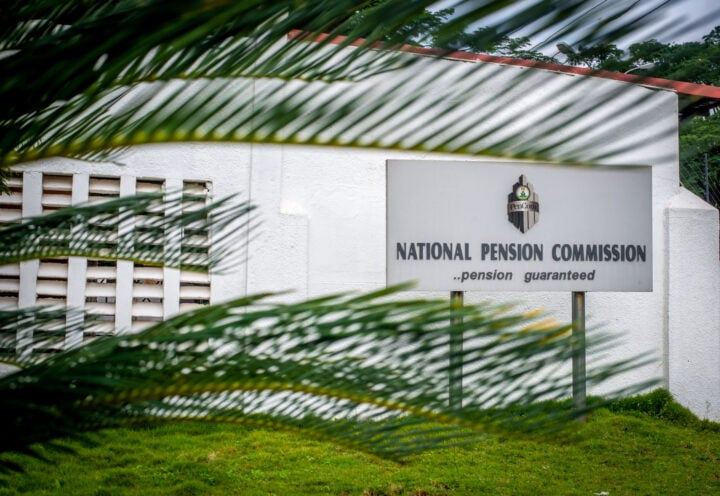Retirement is a significant milestone in every worker’s life, marking the transition from years of hard work to a period of reaping the fruits of labour. However, the journey to a stress-free retirement can be fraught with challenges, especially when the prospective retiree is not properly armed with information on the early commencement of processes for accessing retirement benefits. The contributory pension scheme (CPS) was established to ensure that every worker in the public or private sector receives their retirement benefits as and when due. Understanding the workings of the CPS and fulfilling certain responsibilities can significantly ease the retirement process and eliminate delays in benefits payment.
The revised regulation on the administration of retirement and terminal benefits issued by the National Pension Commission (PenCom) in 2022 had significantly improved the retirement benefits payment processes. Accessing the retirement savings account (RSA) for the purpose of retirement can be done under the following circumstances, including mandatory retirement, compulsory retirement and retirement on medical grounds.
GROUNDS FOR RETIREMENT
Mandatory retirement occurs when an employee disengages from service upon reaching the retirement age or completing the length of service stipulated in their employment terms, typically after attaining the age of 50 years. There are various retirement ages in Nigeria depending on the terms of employment. Compulsory retirement under the CPS happens when an employee is disengaged from service in accordance with the terms and conditions of employment before attaining the age of 50 years.
Advertisement
Retirement on medical grounds is when an employee disengages from service before attaining the age of 50 years, having been certified by a qualified physician as mentally or physically incapable of performing their job functions due to permanent disability of either mind or body.
RESPONSIBILITIES OF PROSPECTIVE RETIREES
To facilitate a smooth retirement process devoid of delays in retirement benefit payments, RSA holders must fulfil certain responsibilities, which include notifying their pension fund administrators (PFAs) of their intention to retire six months preceding the retirement and submitting the necessary documentation. The documents required are the official notice/acceptance of retirement issued by the employer, indicating the intention to retire. Additionally, the last three pay slips or any other evidence of total annual emolument must be submitted.
Advertisement
Employees of federal government treasury-funded ministries, departments and agencies (MDAs) that were in service as at June 2004, are required to be enrolled and verified. PenCom has deployed an online enrolment application automating the enrolment of these prospective retirees, which is conducted a year before retirement.
Furthermore, any document confirming that retirement aligns with the terms and conditions of employment is necessary. This may include a letter of employment, condition of service, or staff handbook, particularly for cases of compulsory retirement. A medical certificate confirming the RSA holder’s inability to continue in employment due to incapacitation is essential for retirement based on medical grounds. In addition, RSA holders must also furnish the PFA with other documentation. This includes the RSA holder’s birth certificate or declaration of age, serving as verification of the retiree’s age at retirement and ensuring compliance with retirement age requirements.
Furthermore, a prospective retiree has the responsibility to choose between programmed withdrawal (PW) and retiree life annuity (RLA) at least three months before retirement by familiarising themselves with CPS retirement packs available on PFAs’ websites. The RSA holder has a right to negotiate and choose to collect either the maximum lump sum due to him/her or take a minimum lump sum, in order to boost his monthly or quarterly pension based on retirement benefits computations. A retiree is also allowed to change the periodicity of payment not more than once in 12 months.
The prospective retiree is also to complete consent forms and provide banking details for prompt remittance of pension payments. All the responsibilities, when duly fulfilled on time, will ensure that retirement benefits and pensions are paid as and when due.
Advertisement
RESPONSIBILITIES OF PFAs
PFAs play a crucial role in ensuring that retirees receive their benefits promptly. One of such crucial roles is to contact prospective retirees at least four months before retirement to initiate documentation processes. PFAs are expected to provide guidance on retirement options and assist retirees in completing necessary forms.
The PFA also computes retirement benefits accurately using standardised templates, informs retirees of lump sum and pension options and facilitates timely payments of retirement benefits after documentation completion. In addition, the PFA submits payment requests to PenCom for review and approval prior to payment.
RESPONSIBILITIES OF NAMED BENEFICIARIES
Advertisement
In cases of deceased retirees, named beneficiaries must approach the deceased’s PFA to apply for death benefits. Such named beneficiaries are required to complete death notification forms and provide the necessary documentation to claim death benefits. The documents include evidence of death, a letter of administration, a will admitted to probate or an order from a court of competent jurisdiction.
CONCLUSION
Advertisement
The revised regulation on the administration of retirement and terminal benefits has comprehensive provisions on how RSA holders can access their retirement benefits. Prospective retirees are encouraged to acquaint themselves with its provisions for expeditious access to their retirement benefits. PenCom remains dedicated to the effective regulation and supervision of Nigeria’s pension industry to ensure that retirement benefits are paid as and when due.
Based on the information from the National Pension Commission.
Advertisement
Add a comment






